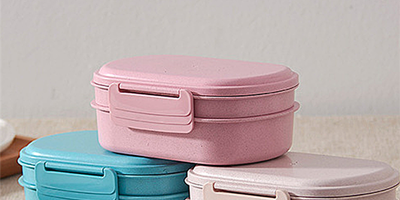Introduction: Transitioning to plastic-free lunch boxes aligns with the zero-waste movement, where individuals aim to minimize waste generation and adopt more sustainable practices. In this blog, we’ll explore how embracing plastic-free lunch boxes supports a zero-waste lunchtime routine.
- Reusable Containers: Plastic-free lunch boxes, made from materials like stainless steel, glass, or bamboo, are reusable and designed to last for years. We’ll discuss how these containers reduce the need for single-use plastics and disposable packaging.
- Bulk Purchases: Choosing plastic-free lunch boxes encourages bulk purchases of food items, reducing the use of individually packaged products. We’ll explore how bulk shopping minimizes plastic waste and saves money in the long run.
- Food Waste Reduction: Plastic-free lunch boxes promote mindful meal planning and portion control, reducing food waste. We’ll discuss how packing the right amount of food ensures that nothing goes to waste.
- Compostable and Biodegradable Options: Some plastic-free lunch boxes are compostable or biodegradable, further supporting a zero-waste approach. We’ll explore how these lunch boxes can be disposed of responsibly, returning nutrients to the soil.
- Eco-Friendly Utensils: Incorporating reusable utensils, such as bamboo or stainless steel cutlery, complements the plastic-free lunch box initiative. We’ll discuss how these utensils help avoid single-use plastic cutlery.
- Environmentally Conscious Habits: Using plastic-free lunch boxes encourages individuals to adopt environmentally conscious habits throughout their daily routines. We’ll explore how these habits extend beyond lunchtime, contributing to a zero-waste lifestyle.
Conclusion: Plastic-free lunch boxes play a vital role in a zero-waste lunchtime routine, promoting the use of reusable containers, bulk purchases, food waste reduction, compostable options, eco-friendly utensils, and overall environmentally conscious habits. By embracing these practices, individuals can make significant contributions to waste reduction and create a more sustainable future.








